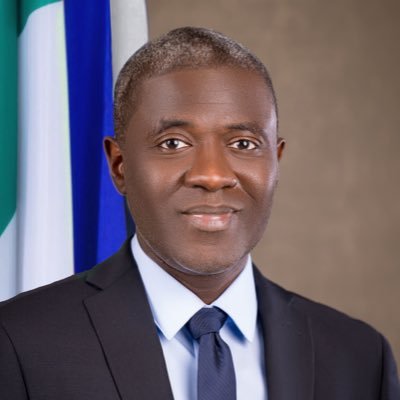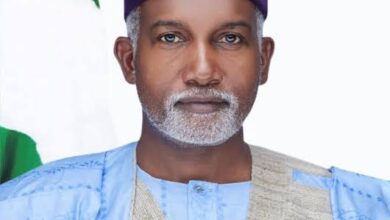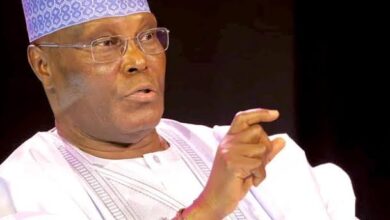COVID-19: Where is the Fiscal Stimulus?

A recent statement made by the Nigeria Finance Minister, Mrs. Zeinab Ahmed, on Politics Today on Channels Television that if the current Coronavirus pandemic, CONVID-19, is prolonged in containing, the economy may once again slip into another recession.
The Honourable Minister was only being economical with the truth. The Minister knows that the Nigerian economy since exiting recession has been sluggish and weak and necessary policies and infrastructure needed to energise the economy have been perennially unavailable.
The unexpected devastating COVID-19 has further exposed how fragile and precarious the situation is, especially with the way global economies are going on their knees, battling how to tackle the menace.
The Nigeria situation is made worse being a monolithic economy, depending on oil proceeds for sustenance. The International Monetary Fund (IMF) had on Friday, March 26, 2020, came out with a damning report that the global economy had recessed. The same institution had earlier in the year reviewed downward many growth projections of some countries in the world.
Nigeria’s growth forecast was reversed to 2.0 percent from earlier 2.5 percent. This was shortly before what was believed to be localised disease took on the world, ravaging economies and taking human lives in unquantifiable dimension.
In Nigeria however, the bitter pill has been forced down our throat. Though the Nigerian economy is one struggling to stand based on some visible economic indices.
The devastating COVID-19 has made the situation more worrisome. While commending the Federal Government, and particularly, the Central Bank of Nigeria (CBN), for the ongoing efforts at containing the coronavirus, especially the various interventions and palliatives aimed at ensuring business continuity, the federal government has not done enough and it must take urgent and specific steps in providing palliatives stimulus to the people and the organised businesses as it has been done in the some countries.
In the wake of the pandemic virus, the Central Bank of Nigeria came out with series of interventions, unveiled in quick succession, starting with N50 billion targeted credit facility and another N100 billion credit support for the health sector. These interventions came shortly after the roundtable stakeholder meeting organised by the CBN and ThisDay Day Media Group, Going for Growth 2.0. The twin action was in response to the pandemic coronavirus, which has led to unprecedented socio-economic disruptions, incomparable to economic global meltdown of 2008/09. COVID-19 has disrupted global supply chains, caused sharp drop in global crude oil prices, (hovering between $28/30 pb), due to price war between Saudi Arabia and Russia, and turmoil in global stock and financial markets. Also, there has been a lockdown of human movements virtually in many countries, including Nigeria.

The CBN Governor, Godwin Emefiele, while announcing the N50 billion credit facility stimulus package, said it was aimed at cushioning the adverse effects of COVID-19 particularly on households and MSMEs. According to him it is targeted to mitigate and support businesses that have been significantly disrupted by the COVID-19 virus. Thus, stimulating credit to MSMEs is to expand their productive capacity through equipment upgrade, research and development.
The N100 billion credit intervention in the health sector, a fallout from the roundtable talk seeks to strengthen the industry’s capacity to meet perceivable surge in the demand for medical products, particularly, pharmaceuticals and services. Specifically, Emefiele noted that “the scheme is to provide credit to indigenous pharmaceutical companies and other healthcare value chain players intending to build or expand capacity”.
Stating further, he noted that, “the scheme is expected to improve public and private investment in the healthcare sector, facilitate improvements in healthcare delivery and reduce medical tourism to improve foreign exchange conservation”.
Thus, the N50 billion scheme will be financed from the Micro, Small and Medium Enterprises Development Fund (MSMEDF) to embrace key economic activities in agriculture value chain, hospitality, airline service providers, manufacturing/value addition, trading and any other income generating activities as may be prescribed by the CBN, with NIRSAL Microfinance Bank being the sole participating financial institution for the Scheme.
However, the N100 billion health intervention fund would be funded from the Real Sector Support Facility-Differentiated Cash Reserves Requirement (RSSF-DCRR) window with authorised Deposit Money Banks and Development Finance Institutions as disbursing agents.
These actions of the CBN may not have come as a surprise. The Bank’s governor had in the last three monetary policy committee meeting cried out and admonished the fiscal authority to block leakages in the system and urging them to adhere to the tenets of the Economic Recovery Growth Plan (ERGP) and cultivate saving to increase buffers in case of the situation we have found ourselves.
However, had the fiscal authority heed and done enough of what the CBN had advised and has been doing, and had not been paying lip service to economic diversification, Nigeria may not have found itself caught up napping in this economic quagmire.
The Central Bank of Nigeria had since 2015 came up with quite a number of monetary policy measures aimed to keep the economy afloat without corresponding effort from the fiscal space.
Many countries in the world not excluding the developed economies, have come up with both fiscal and monetary stimulus packages in form of palliative measures to mitigate the effect of this crisis.
The United States of America came out few days ago and announced a $2 trillion stimulus package in response to the economic impacts of COVID-19 on its economy and welfare of its citizens.
United Kingdom, also announced a stimulus package to stabilize its economy with the government’s willingness to offset 80 percent of the workers salaries in the country, as well as suspension of payment of VAT till June among others measures to cushion the effect. However, in Nigeria, the government is yet to come up with any measure other than the N20 reduction in oil pump price.
In its continuous efforts not to allow the economy slipped again into recession as a result of this ravaging virus and dipping crude oil prices, the CBN Governor has rallied around billionaire entrepreneurs and corporate institutions in the country under the umbrella of Nigeria Private Sector Coalition against COVID-19 including the apex bank, to donate N1 billion each towards combating the menacing virus.
The effort is to mobilize private sector resources and lend support to the government in its efforts to contain the virus. It is also to support private and public healthcare institutions in the country. The response has been phenomenal. There is yet to be a commensurate effort from the fiscal authority, either for its citizens welfare or the economy.
As a stop-gap measure, these efforts are soothing as it will calm headwinds in the economy. Thus, the decision by the CBN to support pharmaceutical and healthcare companies is commendable, given the shutdown of countries across the globe, and the rising spread of the COVID-19 virus in Nigeria.
The Bank has also cut down interest rate on all credit facilities by beneficiaries and those to benefit from the N50 billion facility to 5% from 9%, and urged deposit money banks to defer repayments of loans for the next one year on any of the intervention windows.
According to the CBN the “working capital shall be for a maximum period of one year, with no option for rollover. Term loan shall have a maximum tenor of not more than 3 years with, at least, one-year moratorium.”
For households and SMEs, the guidelines stated that eligible households or MSMEs will have to submit applications directly to NIRSAL Microfinance Bank (NMFB). The application the guidelines said, must among others, “contain BVN number, business registration (where applicable) and business plan with clear evidence of the opportunity or adverse impact as a result of COVID-19 pandemic.”
The present situation where Nigerians have been ordered to remain at home and businesses shut down, coupled with pervasive poverty and unemployment in the country, it behoves the government to come out urgently with measures aimed at easing this added hardship.
Nigerians had expected the Finance Minister, on behalf of the federal government to have come out with palliative measures just like her other counterparts in other climes to ease the pains of this period of uncertainties.
In this aspect, the CBN has done creditably well with Godwin Emefiele in charge.
Markets, schools and offices have been shut down, movements restricted, and businesses, especially those that depend on daily transactions for survival, are now faced with uncertainties, presenting a bleak future, thus the government must speak out to Nigerians now. And the most needed is food. However, the supply chain of food had been truncated with the unabated insecurity challenges in the country, particularly in the food-producing regions.
The government should in earnest partner with the monetary authority if it is clueless on how to assuage the consequences of these menacing virus on Nigerians as we have been warned to prepare for the worse.
These realities, if prolonged and not urgently contained, according to the Finance Minister will lead to economic recession as prices of essential needs continue to spike. The dire consequences stare us in the face.
Therefore, there is an urgent need for the government to look beyond CBN interventions and fashion its own fiscal stimulus package to mitigate the effect of the lockdown on the already traumatised Nigerians.
Joy Nguri writes from Numan, Adamawa State.





